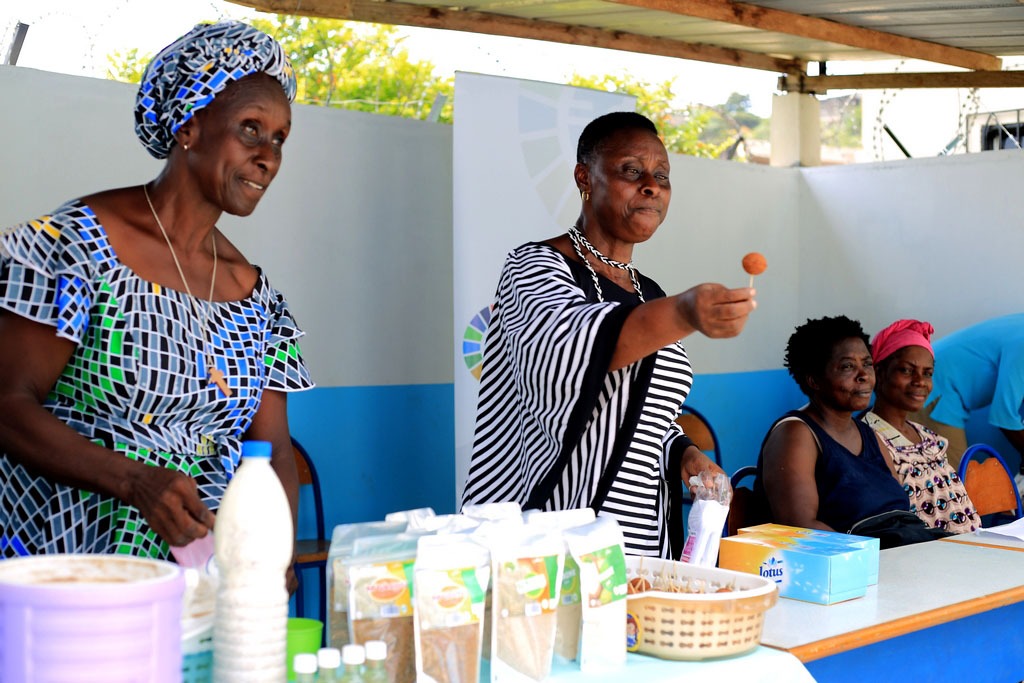
Economic empowerment and addressing women's vulnerabilities

General context and main challenges
The Ivorian economy is mainly based on agriculture. Agriculture employs 65.8% of the active population and 67% of the female labor force is employed in agriculture, mainly in subsistence farming.
In terms of access to resources, women in Côte d'Ivoire have difficulty accessing economic assets such as land and loans. Indeed, only 5% of women have access to land, even though they are responsible for 75% of basic food production.
In terms of the structure of the economy, Ivorian women are mainly confined to the informal sector and are more affected by unemployment than men; only 27% of registered businesses are owned by women, while they represent 60% of workers.
60-80% of food production is done by women. However, the variability of climate-related factors affects production and productivity. Climate change is a major challenge for the Ivorian economy, which is essentially based on agriculture. The people most affected by the effects of climate change are women, who are the main actors in food production.
In terms of employment, the share of salaried employment is much lower for women (8.6 percent) and the unemployment rate is higher for women (11.9 percent) than for men (7.4 percent) according to 2012 employment survey data. The formal private sector absorbs only 9 percent of women compared to 91 percent of men out of the total number of working populations in the said sector. Women survive in precarious, low-paying jobs, where they often have little time to exploit new economic opportunities or influence decision making.
In rural areas, the majority of women work in agriculture. A 2015 World Bank report found that 3 out of 4 women in rural areas were living below the poverty line in 2013.
UN Women's Actions in Côte d'Ivoire
UN Women has structured its interventions for women's economic empowerment and vulnerability reduction around three initiatives:
(i) Supporting women in agricultural value chains,
(ii) Women's access to information and communication technologies (ICTs), and
(iii) Development of women's entrepreneurship.
Thus, the support to women in the shea value chain has enabled the strengthening of material, technical and organizational capacities for the benefit of 1,927 women from 21 groups in the shea sector. This support enabled the 21 women's groups to obtain organic certification in January 2019, thus giving access to European and American markets to the shea products of these 21 women's groups, which are linked within an economic interest group (EIG) created with the support of UN Women. Today, there is an Interprofessional Organization of Shea (OIK).
The Center for Women Entrepreneurs (CWE)
The Center for Women Entrepreneurs (CWE) of Côte d'Ivoire driven by the Ministry of Women, Family and Children, the City Hall of Attécoubé, supported by UN Women with financial assistance from the Government of Japan, was inaugurated in November 2017 in the presence of Ms. Phumzile Mlambo-Ngcuka, Executive Director, of then UN Women. This initiative marks the commitment of the Government of Côte d'Ivoire to accompany women in their empowerment for the fight against poverty and the reduction of inequalities. The main missions of the CWE are to:
- Develop an incubator for young girls with innovative business creation projects;
- Strengthen the entrepreneurial education and training of women in Côte d'Ivoire, enhance the use of ICT in entrepreneurial activities;
- Identify, accompany and develop women entrepreneurs with high impact potential, create and animate a network of women entrepreneurs.